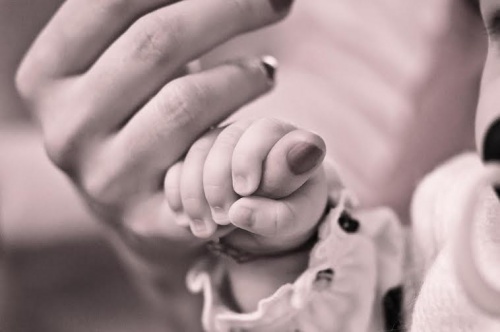Mothers Suffer From Burnout Syndrome Too

We understand the anguish of believing that you are the only one who ever wants to go away for a weekend, on your own, without responsibilities or schedules. We understand your guilt, your extreme exhaustion and your tears. We know that burnout syndrome affects moms too.
Until recently, burnout syndrome was considered a disease that was limited only to the working world. Its main symptoms include physical and mental stress and fatigue caused by long workdays.
Now it can also be applied to the family environment. Specifically it is applied to mothers, both first-time moms and those who have more than one child. Sounds logical, doesn’t it?
The well-known burnout syndrome has a higher incidence in workers who are subjected to hostile environments for many hours each day. We also should not forget the most challenging job that a person can take on: raising, caring for, and taking responsibility for a child.
Burnout Syndrome: Questions and More Questions

What job is harder than dedicating yourself exclusively to the care of your children? Is there anything more stressful than the reality of doing and doing, and feeling like you are never able to stop?
Who wouldn’t stress out knowing that you have 24 hours to complete a long list of tasks? Isn’t it terrible to know how exhausted you are and still not get a break? Doesn’t it hurt to feel guilty for sometimes wanting to give everything up?
These questions are asked daily by millions of mothers around the world, because successfully raising children, looking after the house, being a wife, and having a career is all overwhelming and affects all of us. So you shouldn’t feel guilty every time you cry when you want to go to bed and your baby is refusing to sleep.
As mothers, we tend to demand more of ourselves than we are able to give. Our day starts early with our children. By noon we feel that we are lacking strength, but we keep going. By night time we are already exhausted; And when we finally manage to get the baby to sleep, we feel like cutting and running, and feel guilty for this.
If we don’t recognize that we need help, or that the burnout syndrome may be dormant and we need to get to work to overcome this problem, we will only allow the disorder to worsen. The postpartum depression that happens during the first months of our baby’s life could remain inside of us for a long time.
Ask for help whenever you need it and, most importantly, spend time taking care of yourself.
How To Know If You Have Burnout Syndrome

According to the specialists, the symptoms of burnout syndrome are as follows:
- Extreme exhaustion. Starting when you get up in the morning, you want to stay in bed without doing anything, due to the few hours you are able to sleep and accumulated exhaustion.
- Loss of appetite. Given the amount of things you have to do, you ignore the times when you should eat, or choose to just have a snack. You know it is a mistake not to eat well, but tiredness wins the battle.
- Discouragement and disinterest. The repetitiveness of certain tasks, such as feeding the baby, tidying up, and changing diapers, puts you on autopilot. You treat these tasks as obligations which has an effect on the interest you show in things that you used to enjoy, such as listening to music, cooking a yummy dessert, going for a walk, or reading a book. You feel like spending time on these things would be irresponsible.
- Being in a bad mood. By not doing what you want and just doing what you have to, your good mood will vanish and this will directly affect your marriage. You will want to distance yourself from your partner, but this worsens your emotional state.
- You feel guilty every time you want to cry because you can’t take any more, when something doesn’t turn out as expected, when you see your house is messy again, when you don’t want to get out of bed when you hear your baby cry at midnight, when you act disinterested with your partner. It seems like guilt is your closest friend during this difficult time.
If you are a mother who is experiencing burnout syndrome, do not be afraid to admit that you cannot handle so many responsibilities alone. Ask for help whenever you need it and, most importantly, spend time taking care of yourself. If you are taken care of, your family will be too.
Talk to your partner and your closest family members to tell them how you feel and what kind of support you expect from them. You will see that by letting them work together with you, you will feel better. You will go back to seeing the wonderful and chaotic world of motherhood in a positive light.
All cited sources were thoroughly reviewed by our team to ensure their quality, reliability, currency, and validity. The bibliography of this article was considered reliable and of academic or scientific accuracy.
- Pérez-Díaz, P. A., & Cádiz, D. O. (2020). Burnout parental en Chile y género: un modelo para comprender el burnout en madres chilenas. Revista de Psicología, 29(1). https://auroradechile.uchile.cl/index.php/RDP/article/view/57987
- Sierra, E. I. C. (2018, October). Construcción y Validación del Instrumento de Burnout en Madres Mexicanas. In XII CONGRESO DE POSGRADO EN PSICOLOGÍA| UNAM| 2018. http://cuved.unam.mx/divulgacion/index.php/CPMDP/XIICPPUNAM2018/paper/view/499
This text is provided for informational purposes only and does not replace consultation with a professional. If in doubt, consult your specialist.
